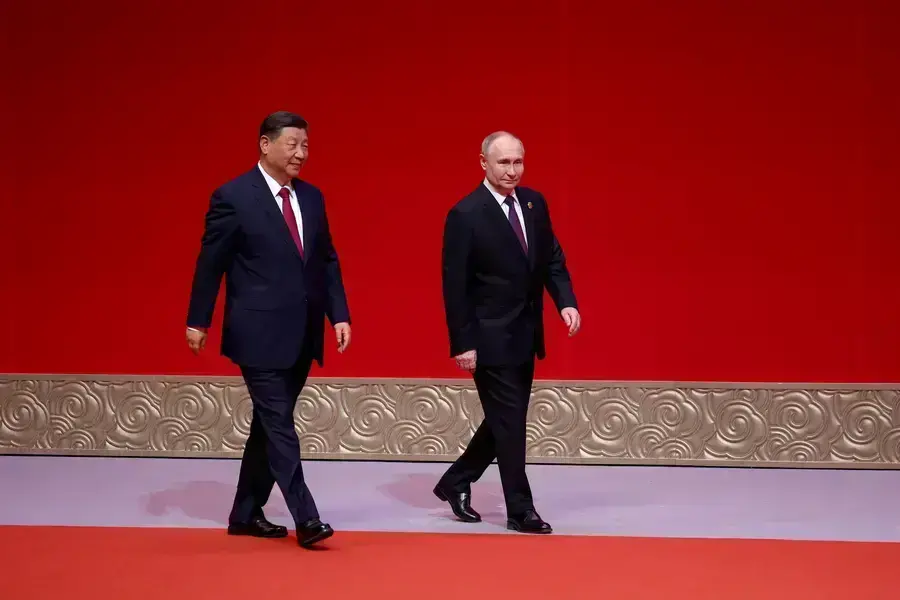The post-Cold War era is over and a dangerous new era of great power competition has begun.

Blog Post by Michelle Kurilla
May 23, 2024 10:42 am (EST), CFR
The latest episode of The President’s Inbox is live! This week, Jim sat down with David E. Sanger, White House and National Security Correspondent for the New York Times. David recently published New Cold Wars: China’s Rise, Russia’s Invasion, and America’s Struggle to Defend the West. They discussed the United States’ return to great power competition.The President’s Inbox
America’s New Cold Wars, With David Sanger
David Sanger, the White House and national security correspondent for the New York Times, sits down with James M. Lindsay to discuss how the post-Cold War ended and why the new era of geopolitical rivalry began.
Here are four highlights from their conversation:
1.) The post-Cold War era is over. The United States no longer enjoys its unipolar moment. Following the collapse of the Soviet Union in 1991 and through the 2000s, the United States and the West made a series of misjudgments about where Russia and China were headed. They assumed that Russia and China would want to become more integrated into the U.S.-led world order. David acknowledged that Russian President Vladimir Putin stated explicitly in 2007 that he would do the contrary, while China’s ambitions were unclear initially. David said, “this was a failure of imagining a world in which these powers wanted to return to a past era of greatness and weren’t going to sit still for a unipolar world, run out of Washington under Washington values
2.) The new era of great power competition is distinct from the old Cold War. The old Cold War was largely a military competition between the United States and the Soviet Union. Today, the United States is engaged in a great power competition that is more complex. The United States is engaged in competition with China and Russia—both of whom have nuclear arsenals. The United States is dealing with, as David put it, “a Russia that has learned with great effectiveness, how to be an agent of disturbance or at least disruption, and a China whose rise, although it has recently run into considerable economic headwinds, has created a range of new problems for us.” At the same time, the United States and its allies and partners—including NATO members, Japan, South Korea, the Philippines, and Australia—and the “Axis of Resistance”—which is made up of China, Russia, North Korea, and Iran—are squaring off. The United States and the Soviet Union, however, were never as interconnected as the United States, China, and Russia are today. He added, “in the new Cold Wars, we are still reliant on the Chinese for chips, other technology. They are reliant on us, and yet none of that has prevented us from descending into what I think is a new era of containment.
3.) The Russia-Ukraine war is a “laboratory” for the United States and its partners against the backdrop of great power competition. The United States is learning what does and doesn’t work in direct conflict with major powers. For example, the United States now realizes that its expensive satellite systems are “sitting ducks.” In the run-up to the war in Ukraine, Russia successfully took out the European Viasat satellite network through a cyberattack on the ground-based modems. Now, the United States is looking to move to a system like Elon Musk’s Starlink—which consists of small satellite constellations. That’s just one example of expensive, modern technology mismatching warfare realities.
4.) There is more reason for optimism on the U.S.-China relationship than the U.S.-Russia relationship. David put it this way, “oddly enough, I’m slightly more optimistic, at least in the short term on China than I am on Russia. At least we have conversations underway with them. That’s really only in the past year and is driven less by the brilliance of our diplomacy, I think, than by the fact that the Chinese economy has been through a significant downturn that’s going to be really hard for them to reverse.” At the same time, when Putin threatened to use nuclear weapons in Ukraine, China stated its opposition to the use of nuclear weapons in the conflict. China and the United States have some opportunities for collaboration. David added, “I don’t have any illusions that that’s going to be a broad effort, and I fear the two countries [Russia and China] may grow closer, not further apart, but it is an opportunity for the US.”
If you’re looking to read more of David’s work, check out this adaptation from his book for the New York Times about the lessons learned from the war in Ukraine.
